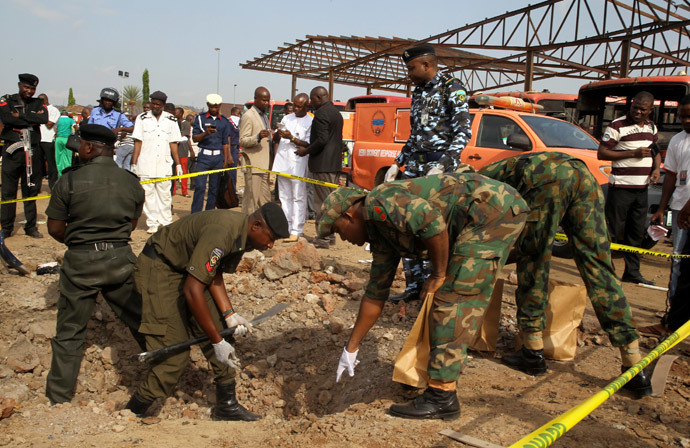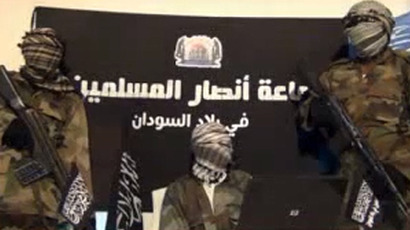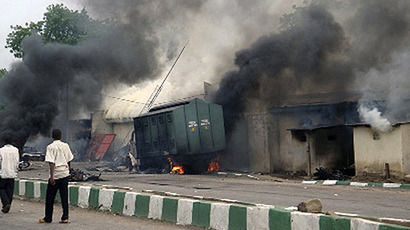71 people killed, 124 wounded in Nigeria bus station blasts - police
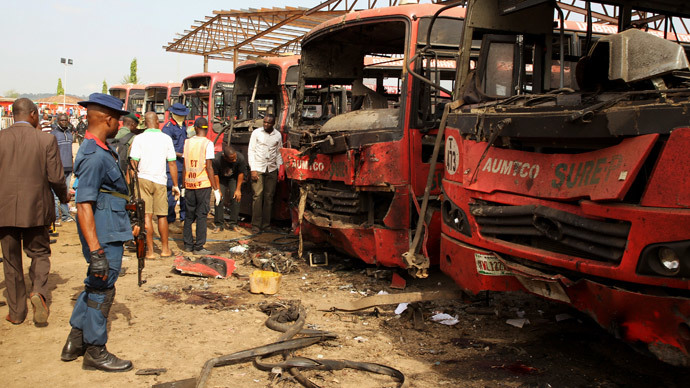
Seventy-one people have been killed and a further 124 injured in two blasts that tore through a bus station on the outskirts of Nigeria’s capital, Abuja, police officials said.
The explosions took place as several hundred commuters were boarding buses to Abuja. Police spokesman Frank Mba told AP that 16 luxury coaches and 24 minibuses were destroyed.
Police say they believe that secondary explosions were triggered by the first one.
"There was only believed to be one blast with secondary explosions as vehicle fuel tanks ignited and burned," Mba said.
“I was waiting to get on a bus when I heard a deafening explosion then smoke,” eyewitness Mimi Daniels who works in the capital, told Reuters. “People were running around in panic.”
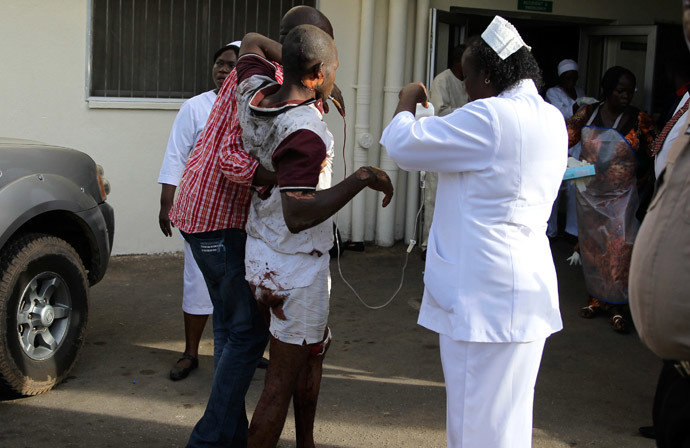
While there were initially thought to have been multiple explosions, subsequent blasts were found to have been “secondary” as fuel tanks in the vehicles ignited.
Dead bodies were scattered around the scene of the attack, and ambulances arrived in the area to take the dead and injured to hospitals.
“Rescue teams are already on ground. There were so many people there at that time, so we think there must have been some injuries,” Manzo Ezekiel of the National Emergency Management Agency told AFP shortly after the blast before details of the death toll were confirmed.
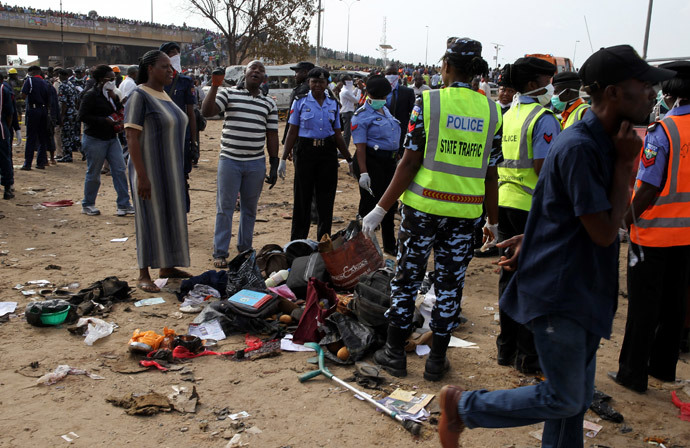
Local correspondents have suggested that Islamist militant group Boho Haram may have been responsible for the attack.
At least 1,500 people have been killed by Boko Haram in north-east Nigeria this year, according to Amnesty International. The group have targets schools and military installations. In 2011, the group hit the UN building in Abuja.
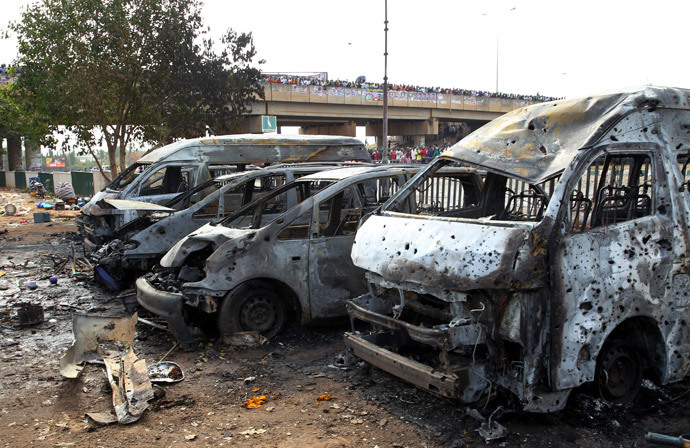
Boko Haram had been threatening to carry out an attack on the
capital. They are suspected of being behind the most recent
terrorist attack in Nigeria, in the northeast of the country,
which resulted in some 60 deaths.
On Sunday, armed militants besieged Nigeria’s northeastern Borno
State, near the border with Cameroon.
“The attackers, who are no doubt Boko Haram insurgents,
attacked Amchaka and nearby villages this morning, hurling IEDs
[improvised explosive devices] into homes and setting them on
fire,” local government administrator Baba Shehu Gulumba
told AFP.
“They then went on a shooting spree, opening fire on confused
residents as they tried to flee, killing 60 people and injuring
several others,” he said.
